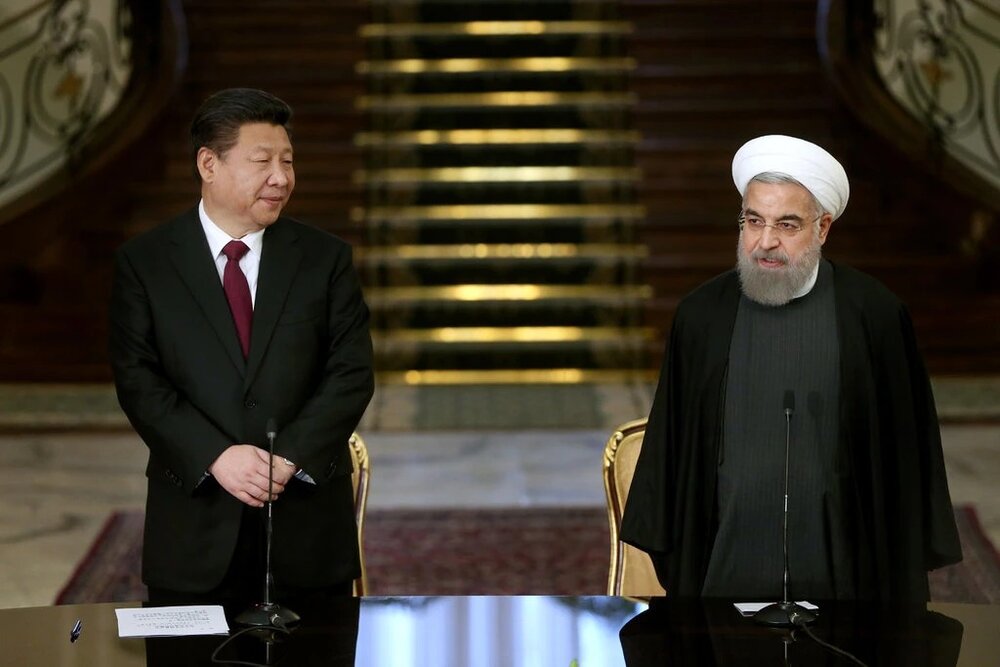Defying U.S., China and Iran near trade and military partnership: NY Times

TEHRAN= Iran and China have quietly drafted a sweeping economic and security partnership that would clear the way for billions of dollars of Chinese investments in energy and other sectors, undercutting the Trump administration’s efforts to isolate the Iranian government because of its nuclear and military programs.
The partnership, detailed in an 18-page proposed agreement obtained by The New York Times, would vastly expand Chinese presence in banking, telecommunications, ports, railways and dozens of other projects. In exchange, China would receive a regular supply of Iranian oil over the next 25 years.
The document also describes deepening military cooperation, potentially giving China a foothold in a region that has been a strategic preoccupation of the United States for decades. It calls for joint training and exercises, joint research and weapons development and intelligence sharing — all to fight “the lopsided battle with terrorism, drug and human trafficking and cross-border crimes.”
The partnership — first proposed by China’s leader, Xi Jinping, during a visit to Iran in 2016 — was approved by President Hassan Rouhani’s cabinet in June, Iran’s Foreign Minister, Mohammad Javad Zarif, said last week.
Iranian officials have publicly stated that there is a pending agreement with China, and one Iranian official, as well as several people who have discussed it with the Iranian government, confirmed that it is the document obtained by The Times, which is labeled “final version” and dated June, 2020.
In Beijing, officials have not disclosed the terms of the agreement, and it is not clear whether Mr. Xi’s government has signed off or, if it has, when it might announce it.
If put into effect as detailed, the partnership would create new and potentially dangerous flash points in the deteriorating relationship between China and the United States.
It represents a major blow to the Trump administration’s aggressive policy toward Iran since abandoning the nuclear deal reached in 2015 by President Obama and the leaders of six other nations after two years of grueling negotiations.
Renewed American sanctions, including the threat to cut off access to the international banking system for any company that does business in Iran, have succeeded in suffocating the Iranian economy by scaring away badly needed foreign trade and investment.
Iran has been one of the world’s largest oil producers, but its exports, Tehran’s largest source of revenue, have plunged since the Trump administration began imposing sanctions in 2018; China gets about 75 percent of its oil from abroad and is the world’s largest importer, at more than 10 million barrels a day last year.
At a time when the United States is reeling from recession and the coronavirus, and increasingly isolated internationally, Beijing senses American weakness. The draft agreement with Iran shows that unlike most countries, China feels it is in a position to defy the United States, powerful enough to withstand American penalties, as it has in the trade war waged by President Trump.
“Two ancient Asian cultures, two partners in the sectors of trade, economy, politics, culture and security with a similar outlook and many mutual bilateral and multilateral interests will consider one another strategic partners,” the document says in its opening sentence.
Leave a Comment